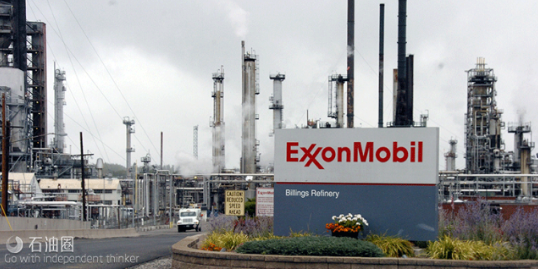
Privacy statement: Your privacy is very important to Us. Our company promises not to disclose your personal information to any external company with out your explicit permission.
2023-10-12
Exxonmobil, an American supergiant, the largest energy exploration and extraction company in the United States and formerly the largest company in the world by market capitalization, is closing in on a deal to buy shale giant Pioneer Natural Resources, It's a blockbuster acquisition worth about $60 billion (about 438.09 billion yuan) that will reshape the U.S. oil industry.

Basf to sell €10 billion business

In addition to the business sale plan, Brudermuller is also considering its own succession, and it is reported that Brudermuller will hand over the chairmanship of the Management Board after the annual general meeting at the end of April 2024. He will then take over as chairman of the Supervisory Board of Mercedes-Benz in mid-May.
Insiders told Handelsblatt that the supervisory board of the world's largest chemical company wants to name a successor at the top of the board by December.
The "burden reduction" strategy in the post-epidemic era
The long-term downturn in the market has put global chemical companies in new difficulties, in order to cope with this continued uncertainty, the world's large chemical groups are constantly shedding, restructuring and even laying off employees to "reduce the burden" of enterprises.
In April, LANXESS established Envalior, a joint venture with Anhong Capital, to incorporate its high performance materials business and acquire DSM's engineered materials business. Since then, LANXess's main business has been streamlined into three business segments, and the cooperation has brought about 1.27 billion euros in revenue, which directly reduced LANXess's net debt in the second quarter of this year by about a quarter.
From May to August, DuPont acquired Spectrum Group, a supplier of materials and technology for specialty medical devices and components, for $1.75 billion, and sold 80.1% of its Delrin homopholydethylene (H-POM) business to private equity firm TJC for $1.8 billion. Seek new performance growth point through the second signboard strategy.
In September, Evonik is planning a radical restructuring of its global structure, and the management team will also develop a new group management model. Thousands of employees could be affected by the plans. Christian Kullmann, Evonik's chief executive, said that offshoring the bulk chemicals business would not only bring in new money, but also generate additional sales by ploughing revenues into the lucrative, faster-growing specialty chemicals segment.
In September, LyondellBasell announced it had begun consultations with regional unions to manage possible job cuts stemming from the closure of one of its two polypropylene production units in Brindisi, Italy. Lanxess has announced its cost reduction plan and is consulting with employee representatives on the type and scope of job cuts; Covestro has announced the closure of its Swiss sales office.
Divergence leads to a new wave of mergers and acquisitions
The situation of chemical market showing a trend of differentiation is gradually obvious.
In the decade 2011-2021, China's share of the global chemicals market increased from 28% to 43%, while North America and Europe are the regions with the fastest relative declines.
From the perspective of the output value growth performance of the top 50 global chemical enterprises in 2019-2022, the European chemical industry is limited by the impact of the energy crisis, while China is in the expansion cycle of large enterprises (the growth of large enterprises in the United States and Japan is relatively stable), with a growth rate of more than 15%.
From the perspective of chemical product production: in 2022, global chemical production will grow by about 2.0%, and in 2023, global chemical production is expected to grow at a rate of 0.6%, and the development of major regions will be differentiated. The American Chemistry Council (ACC) expects global chemical production to increase by 0.6% year over year in 2023, with growth in Asia Pacific, Africa and CIS countries offsetting declines in Europe, North America and Latin America.
With the recovery of global industrial production, the second half of 2023, is expected to see a new wave of mergers and acquisitions in the chemical industry (mergers and acquisitions including mergers, acquisitions and asset divestitures), global chemical companies or will respond to geopolitical turmoil and the global supply chain dispersion of the new business environment, is expected to 2024 global chemical production will achieve a strong growth of 3.5%.
In the next decade, the chemical industry will face a new cycle of change, including:
Accelerating energy transitionShare to:
Send Inquiry

Mr. James
Tel:0086-371-58651986
Fax:
Mobile Phone:+8613783582233
Email:sales@cn-lubricantadditive.com
Address:No.11 Changchun Road, High-Tech Zone, Zhengzhou, Henan
Related Products List
Mobile Site


Privacy statement: Your privacy is very important to Us. Our company promises not to disclose your personal information to any external company with out your explicit permission.

Fill in more information so that we can get in touch with you faster
Privacy statement: Your privacy is very important to Us. Our company promises not to disclose your personal information to any external company with out your explicit permission.